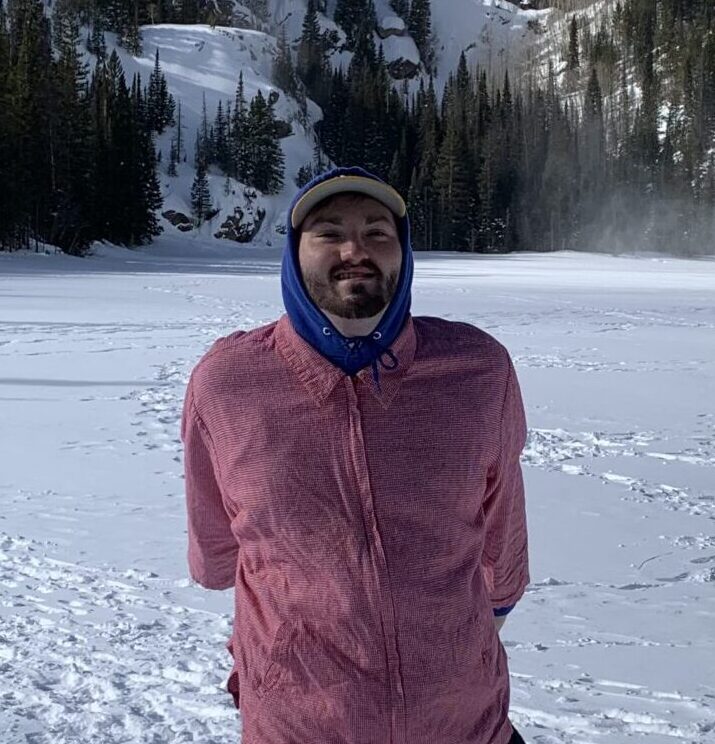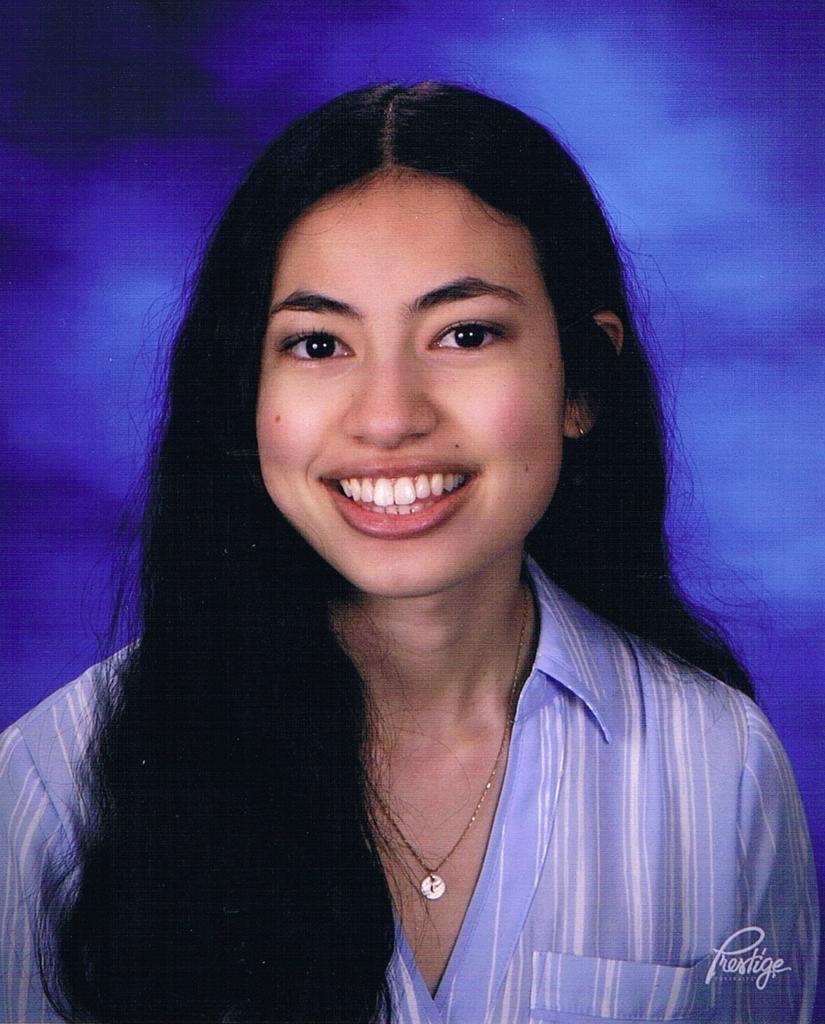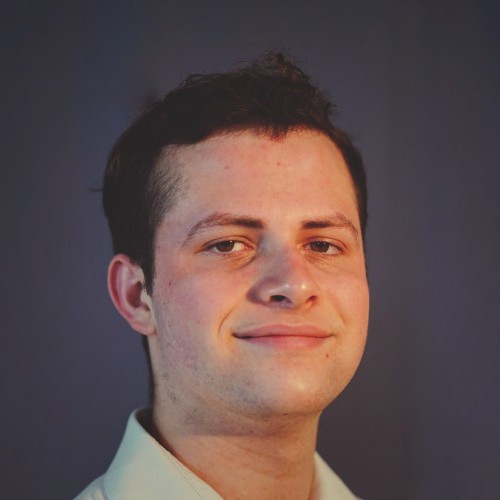
 In this article Matt Rushford, Help Desk Technician and Co-Editor-in-Chief at The Scarlet, takes the reins of the newsletter to highlight three of our many wonderful student employees across the department.
In this article Matt Rushford, Help Desk Technician and Co-Editor-in-Chief at The Scarlet, takes the reins of the newsletter to highlight three of our many wonderful student employees across the department.
A senior majoring in History, with an Art History minor and a concentration in Law and Society, Matt is considering either a Masters in Arts in Teaching at Clark, or pursuing a Masters in Data Journalism and Media elsewhere.
He’s one of our ITS Super Students, and we’re lucky to have him working at the Help Desk and writing for our newsletter!
Carly Mollin, Help Desk Senior Staff
 Carly Mollin is a Senior, majoring in Environmental Science with a track in GIS and a minor in Global Environmental Studies. She has worked for the Help Desk since her Sophomore year, beginning as a Consultant, promoted to a Technician, and is now Senior Staff.
Carly Mollin is a Senior, majoring in Environmental Science with a track in GIS and a minor in Global Environmental Studies. She has worked for the Help Desk since her Sophomore year, beginning as a Consultant, promoted to a Technician, and is now Senior Staff.
Matt Rushford: In the time since you began working here, would you say anything has changed since you began working at the Help Desk?
Carly Mollin: I think working here has helped me with gaining professional skills more than anything. Even though I’m not a Computer Science major or in any of the majors that people most typically perceive IT student workers study.
I have absolutely learned things that I can definitely use in the future. As a Help Desk employee, yourself, Matt, you know what I mean. Personal skills, like time management. Being able to communicate with your coworkers, but also like talking to clients and gaining communication skills that way.
MR: Would you say the Help Desk is a good place for students that do not necessarily have a STEM or computer science background?
CM: Absolutely! I think the Help Desk is structured in a way where the skills you need do not require you to have a background in programming or computer architecture. I really think the training is well done enough that everything you need to learn is very easy to access. You do not necessarily need to have knowledge ahead of time, and a lot of it is learned on the job. I’m happy that I decided to apply here and that I’ve been working here for a few years.
MR: Can you think of any experiences at the Help Desk that you would say are emblematic of your time working here?
CM: I don’t know if there’s a specific moment that I can think of when I felt particularly proud, but I like whenever I’m able to help a client; whenever I get somebody who is like, “thank you so much for helping!” The best feeling is always the relief you feel after solving an issue.
MR: Could you go more in depth about some of the skills you have gained since working here?
CM: Yeah, I think I’ve definitely had to learn how to be quick on my feet for sure. Especially when we get really busy to be able to manage multiple things at once. I think also I’ve learned a lot about being able to communicate with other people and how to handle stressful or difficult situations under pressure.
MR: Do you have any advice for any future students that want to consider a job at the Help Desk?
Yeah, I’d say definitely give it a shot. Working on campus does not have to be necessarily where you may see yourself in your future career. Jobs like the Help Desk can help improve the kinds of professional skills that you can use in the future regardless of your major.
So, I would say yeah, just apply and do not be afraid to get rejected. For example, I tried applying to the library before working here, and that did not end up working out. But I applied here afterwards, and it ended up being a great fit for me.
Sara Kashif, Media Services Technician
 Sara Kashif is an international student from Pakistan and is a fifth-year student pursuing her MBA and graduating in May’23. She joined Media Services as a first year and has worked with our team for almost 5 years!
Sara Kashif is an international student from Pakistan and is a fifth-year student pursuing her MBA and graduating in May’23. She joined Media Services as a first year and has worked with our team for almost 5 years!
Matt Rushford: For those who do not know, what is the Media Services department? What do you typically do around campus?
Sara Kashif: Media Services is a department that supports Audio-Visual (AV) needs across campus – in the classrooms, at major events, and for curricular and extracurricular projects. So, all the setups that you see in Dana Commons and Tilton for events are mostly done by us. We are also the ones people call when the projectors or the equipment in the classrooms are not working. Our department also lends equipment and is responsible for the maintenance of classroom equipment. We also deal with live streaming events around campus (including Gala!)
MR: What is one experience you have had at the Media Services that you would say exemplifies your time working here?
SK: I cannot pinpoint one experience, because there have been many. But I can certainly say that Jim Cormier (our supervisor) has been the driving force that has exemplified my experience at Media Services. I want to give him a huge shout out because he deserves it!
MR: What is one thing you have had to learn while working with Media Services? What is one thing you did not expect before working here?
SK: I learned a lot about the equipment that we carry and how it is used, all the different cables and wires and what they do. I also learned how to work in an office setting, which I had never done before. I did not expect to like it enough for me to stay here for 5 years!
MR: Do you have any advice for any students who might want to work in MS next semester?
Come with an open mind and this place might surprise you with all that it has to offer! Jim is amazing and he will be there for you when you need him 🙂
Caleb Sacks – System Administrator
 Caleb is a Computer Science major and is a Senior, and currently works with our Systems group doing a wide range of work including supporting our High Performance Computing Cluster.
Caleb is a Computer Science major and is a Senior, and currently works with our Systems group doing a wide range of work including supporting our High Performance Computing Cluster.
Matt Rushford: When you first came to Clark, were you originally prepared to become a software engineer when you first came into undergraduate?
Caleb Sacks: As a nerd growing up, I’ve been coding for about 10 years. I knew I wanted to be a software engineer since middle school.
MR: I was reading a bit into high performance clusters and what you do, and I was really interested. I did not know much about the position prior to this, so I am excited to know a bit more about what you do.
CS: For sure! At the high performance computing cluster, we have a super computer of different really powerful servers that researchers, faculty members, and students can use to run their simulations for physics, biochem, or whatever they need. Something cool currently in the works is that we’re about to upgrade our hardware to better specs so things will run faster and smoother in the future.
MR: How long have you been working with high performance computer clusters?
CS: So it’s been two years. It’s a great learning opportunity especially for me as a software engineer. It’s all about learning Linux and parts of technology that I normally wouldn’t learn as a software engineer.
MR: What is the community like in system administration? What goes on in your day to day?
CS: So we’re a small team. We have pretty much four members; Aaron Bennett, Jeffrey [LaMontagne] and Zach Kratz and I.
A lot of our day-to-day work involves supporting users. If a user using the cluster emails us and asks for us to install software, configure something. Also if something isn’t working, we’re there to help.
Like say, a software stops working or users can’t log in. That’d be really bad. So we set up software that monitors that and if something goes wrong, they’ll email us. So a lot about being a system administrator is about being proactive; preparing for those potential errors.
MR: For future system administrators, what would you recommend? What is some advice you have gained since working in your position?
CS: I would say one thing that’s key is to always test every change you make.
What that means is for example, if you install a new software, upgrade a software, upgrade a license for paid software like MATLAB, whatever it is that you are doing. Try using it afterwards. See how users are going to be affected. You never know what could go wrong.
As an administrator, is there anything that you were surprised about that you have had to grow into?
I think I did not initially realize how challenging of a role [system administration] can be. It’s a great opportunity and it’s something I totally recommend for people who are CS majors.
But I say that it’s challenging because there are a lot of things which you will need to be responsible and accountable for. But at the same time, it teaches you to be prepared and be on top of everything so something doesn’t go wrong. It is a great motivator. At the end of the day, it is a fun, exciting position.
